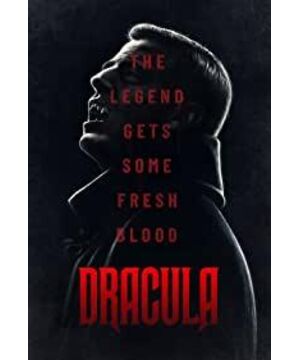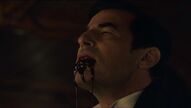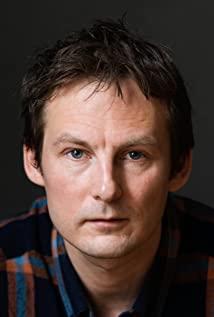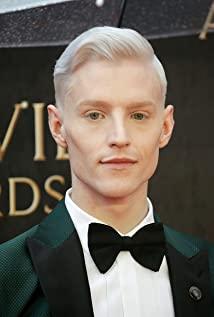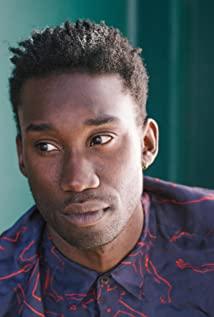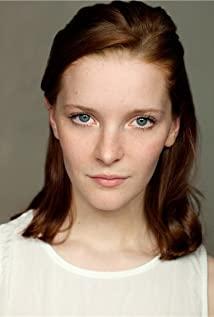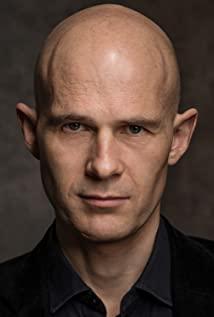1. The first time I saw my (near) ideal type materialized on the screen, this highlight makes me forgive all the faults of this work. I'm not sure if the MG brothers are feminist pioneers (after all, Agatha doesn't have any femininity), but they can really get me cute, keep working hard, you write more unusual female characters and dig out more unusual female characters Actor!
2. I don't understand why many people choose the third episode to complain. The editing of the third episode (especially the ending) is weak and the narrative is chaotic, but the field of vision is much wider. If it relies on the narrative/precise reversal like the first two episodes, it is actually repetitive and boring (and it is difficult to surpass the big reversal in the second episode) , it is better to let the plot divergent thinking and think about modern life (maybe time is rushed, like the first draft that has not been repaired very much, if there is more time, it should have great potential). The real screenwriting problem (promoting the plot by mouth) is actually like this in the first or second episode (even when sherlock), after all, the brothers are not good at action scenes but love scenes (…)
3. Agatha is charming, but the characters are flatter, and so is the Count. The two brothers mainly rely on the relationship between characters. This kind of relationship between good and evil (and there are too few sub-line characters) is difficult to write full (Professor in Sherlock is also flat, but Sherlock Holmes and Peanut have this... roommate relationship... so they are like real people, plus other family, friendship, love relationships, etc.). In the third episode, Zoe has weaknesses but the overall shape is too rushed. The screenwriter's intention may be to make Zoe and agatha combine into a complete person, and at the same time finally discover the true weakness of the Count, so that the two supermen can become ordinary people, and can only love and be loved.
If this is the case, the life problems caused by Agatha as a superman in the early stage should still be written more to come out momentum (now watching the first two episodes, she is basically a perfect person). Earl's "problems with life" are obvious (serial murderer), but his confusion is underrepresented in the first two episodes ("I don't know what my weakness is" brushed aside, too much emphasis on evil genius and sophisticated plot). The problems of the third episode are actually buried in the handling of the first two episodes. If you don’t pursue the perfect and compact narrative, it would be better (the time is so rushed, you guys, you can start filming without thinking about how to write the third episode. the first two episodes?).
4. Do viewers who are closer to Lucy hate her more? I'm a long way from being 22, and I think this girl is pretty fresh (compared to other characters). In the end, it was found that the "ugly" plot should be used to "fix" this character who is infinitely freeing himself, but it was handled like a moral admonition, which made the character more floating. How can I write to keep her? For example, let her admirers have shadows (ugly appearance, psychological inferiority, etc.). Jack in the play is too pure, and their relationship is too pure. Another way is to use family ties/shadows, but the brothers probably aren't good at that (peanut's never-shown sister, sherlock's cartoony family)
5. It's annoying those horror/scary scenes that come every once in a while. Although I know it's a (similar) horror movie, but it's really handled...the feeling of handing in homework. (The most annoying thing is that the heart stopped for a second when the box girl appeared. I hate myself for being scared by the homework)
-------------------------------------------------- -----------------------------------
Time and script issues are not a problem if there is a second season. The third episode can be directly changed to the second season, and many brain holes that have not developed have room to develop. The end of the second episode is perfect for making the audience look forward to the next season.
How did episodes one and two become three episodes in a season? In fact, in the first episode, the past of the Earl and those victims, the story of Harker and Mina, the daily life of the monastery, the past and present of the old lady and the earl in the second episode, the story of the Doctor and his daughter, etc. can all be written and written, and the characters are written in depth .
So that the first season can all take place on the boat, the first episode as a memory (the earl's, and the need for a certain character to witness the monastery scene), have the earl say at some point that the nun is delicious, etc. to make the audience think that the memory of the dead can cause Another inversion.
...however I can think of how the production team couldn't think of it? The reason for not doing this is because the gold master won't give money for two seasons... (can explain why the third episode is so rushed)
View more about Dracula reviews


